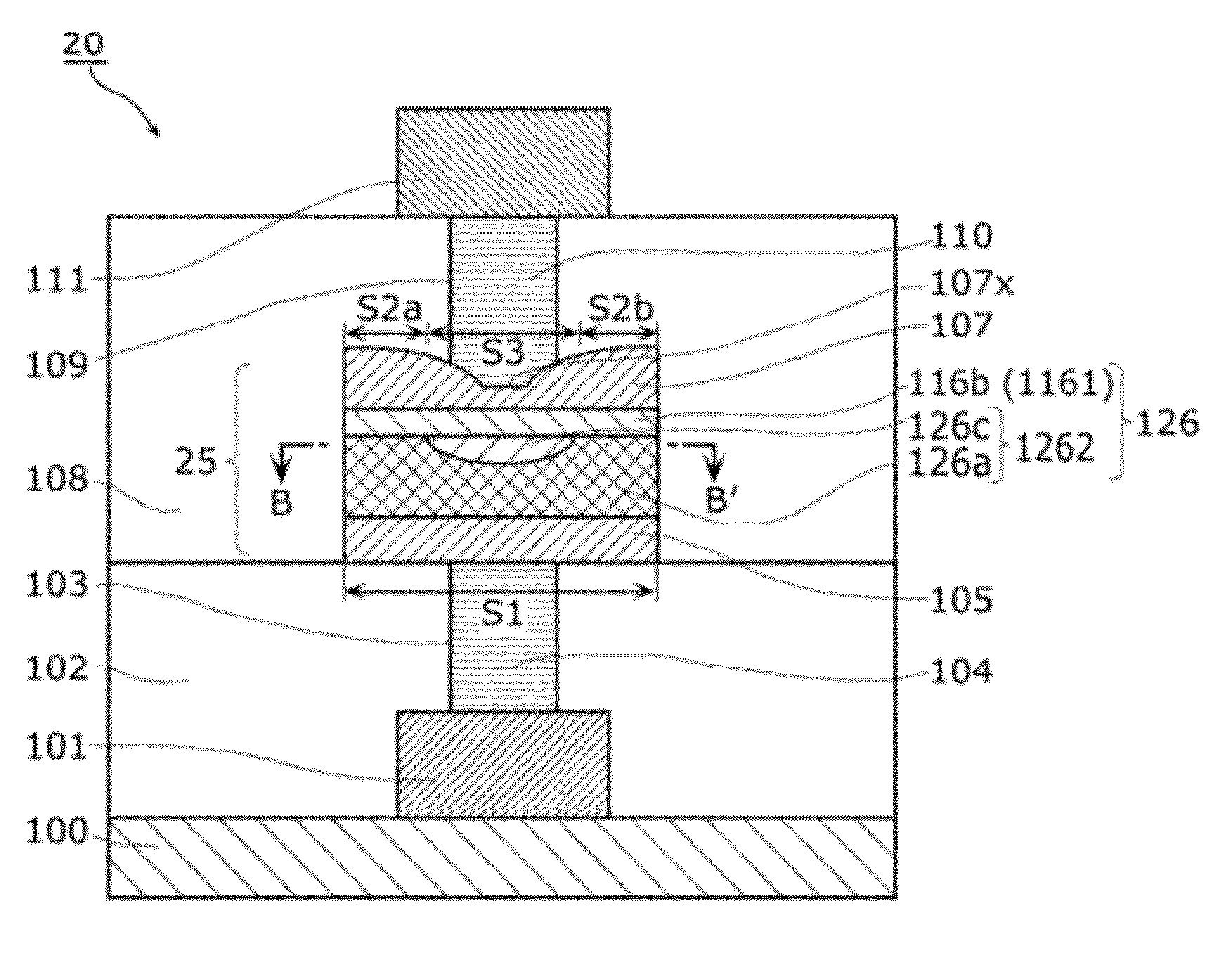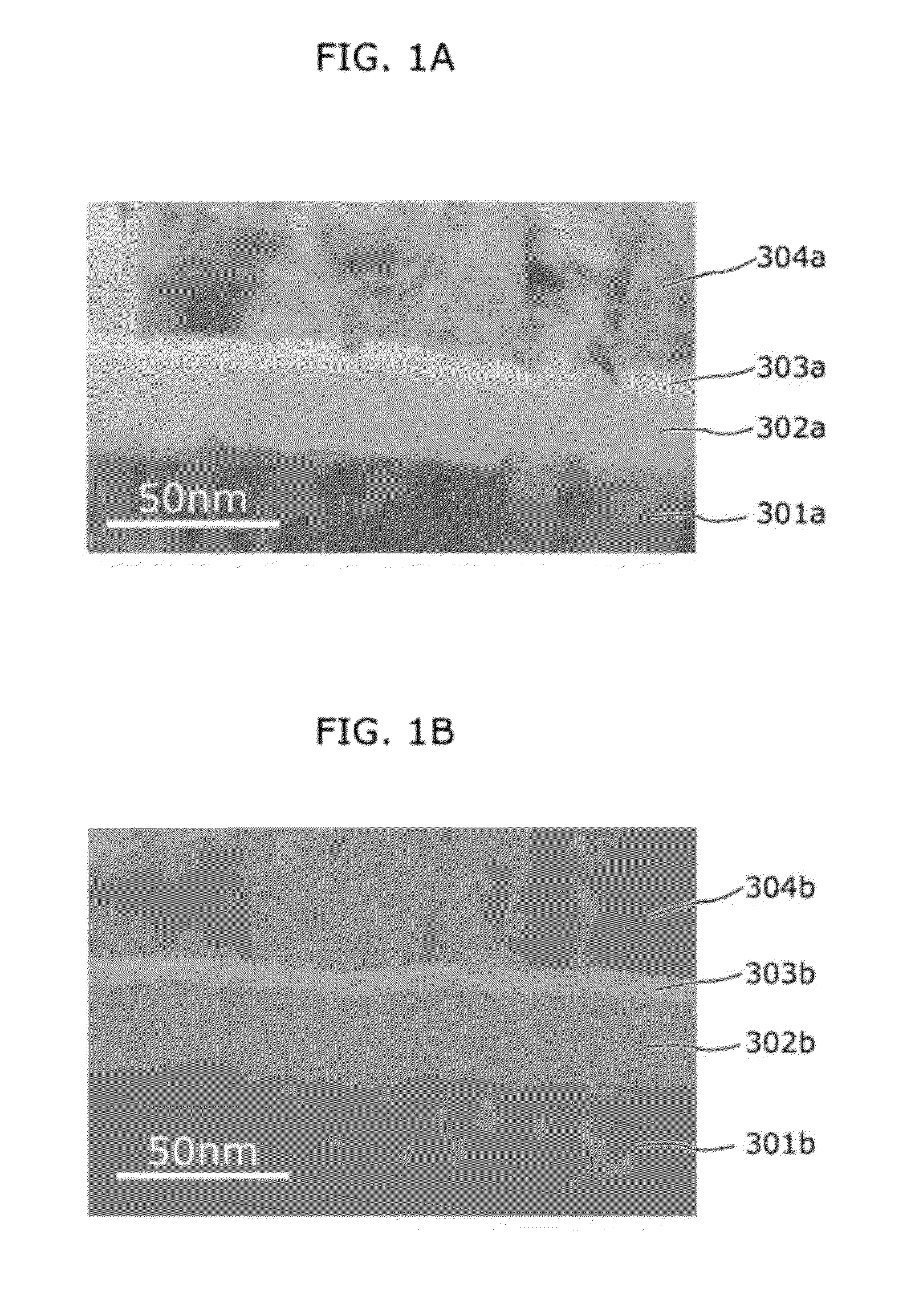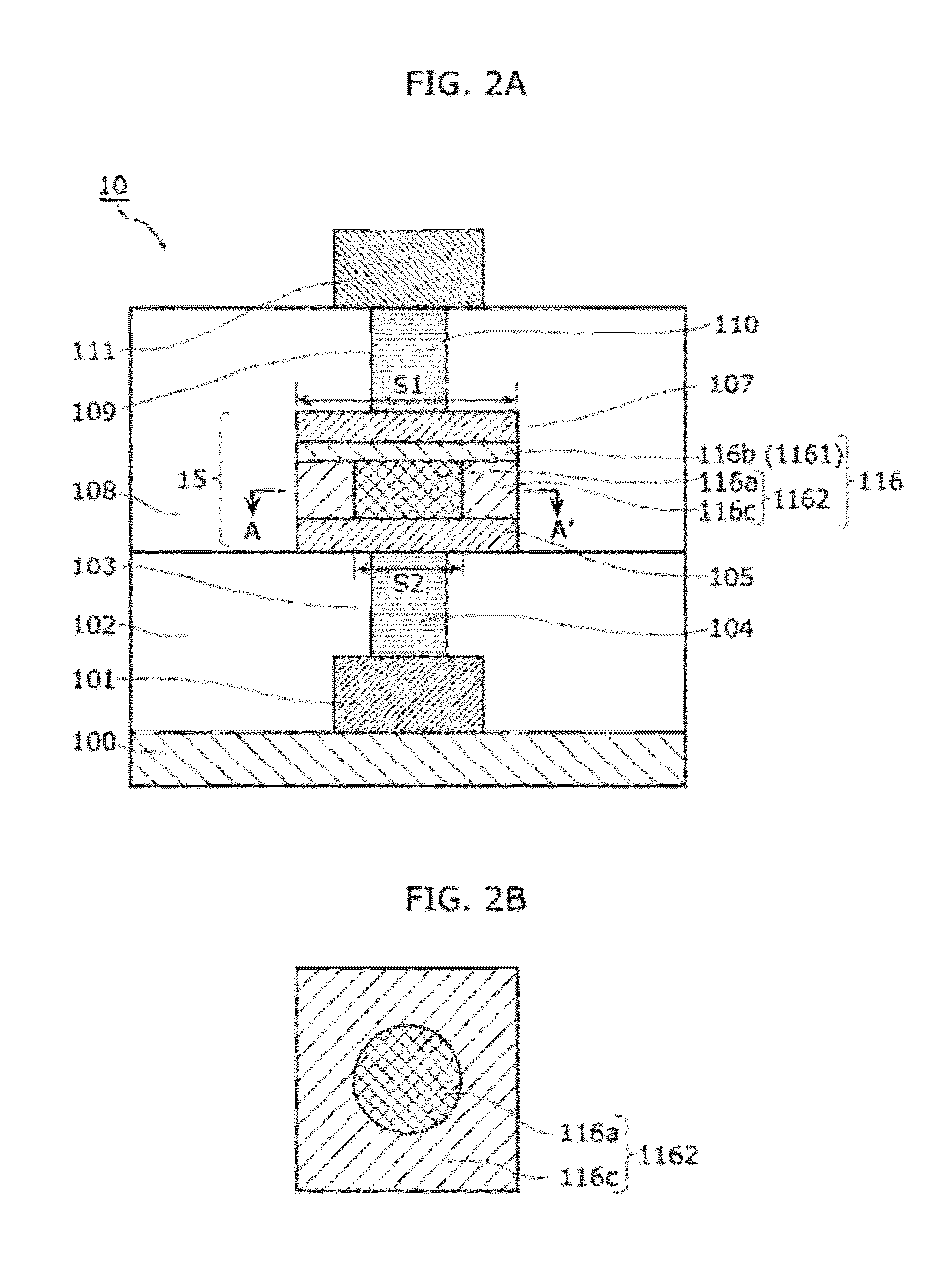Nonvolatile memory element, production method therefor, design support method therefor, and nonvolatile memory device
a technology of nonvolatile memory elements and production methods, applied in bulk negative resistance effect devices, solid-state devices, instruments, etc., can solve the problem of limiting the miniaturization of existing flash memories using floating gates, and achieve the effect of reducing the initialization voltage, facilitating the formation of a conductive path, and reducing the leakage current in the variable resistance layer
- Summary
- Abstract
- Description
- Claims
- Application Information
AI Technical Summary
Benefits of technology
Problems solved by technology
Method used
Image
Examples
first embodiment
[0068]First, a nonvolatile memory element according to the first embodiment of the present invention is described.
[Structure]
[0069]FIG. 2A shows a cross-sectional view of a nonvolatile memory element 10 according to the first embodiment of the present invention. FIG. 2B shows a cross-sectional view taken along A-A′ of FIG. 2A. As shown in FIG. 2A, a nonvolatile memory element 10 according to this first embodiment is a variable resistance nonvolatile memory device and includes a substrate 100, a first line 101, a first interlayer insulating layer 102, a first contact plug 104, a variable resistance element 15, a second interlayer insulating layer 108, a second contact plug 110, and a second line 111. In a practical structure of a memory cell using the nonvolatile memory element according to the present embodiment, one of the first line 101 and the second line 111 is connected to a switching element (i.e., a diode or a transistor) which is set to be OFF when the cell is not selected. ...
second embodiment
[0100]Next, a nonvolatile memory element according to the second embodiment of the present invention is described.
[Structure]
[0101]FIG. 6A shows a cross-sectional view of a nonvolatile memory element 20 according to the second embodiment of the present invention. FIG. 6B shows a cross-sectional view taken along B-B′ of FIG. 6A. As shown in FIG. 6A, a nonvolatile memory element 20 according to this second embodiment is a variable resistance nonvolatile memory element and includes the substrate 100 comprising silicon (Si), the first line 101, the first interlayer insulating layer 102, the first contact plug 104, a variable resistance element 25, the second interlayer insulating layer 108, the second contact plug 110, and the second line 111. The second variable element 25 includes the lower electrode 105, a variable resistance layer 126, and the upper electrode 107. The variable resistance layer 126 is a layer disposed between the lower electrode 105 and the upper electrode 107 and ha...
third embodiment
[0112]Next, a nonvolatile memory element according to the third embodiment of the present invention is described.
[Structure]
[0113]FIG. 8A shows a cross-sectional view of a nonvolatile memory element 30 according to the third embodiment of the present invention. FIG. 8B shows a cross-sectional view taken along C-C′ of FIG. 8A. As shown in FIG. 8A, the nonvolatile memory element 30 according to this third embodiment is a variable resistance nonvolatile memory element and includes a substrate 200, a first line 201, a first interlayer insulating layer 202, a first contact plug 204, a variable resistance element 35, a second interlayer insulating layer 209, a second contact plug 211, and a second line 212. In a practical structure of a memory cell using the nonvolatile memory element according to the present embodiment, one of the first line 201 and the second line 212 is connected to a switching element (i.e., a diode or a transistor) which is set to be OFF when the cell is not selected...
PUM
 Login to View More
Login to View More Abstract
Description
Claims
Application Information
 Login to View More
Login to View More - R&D
- Intellectual Property
- Life Sciences
- Materials
- Tech Scout
- Unparalleled Data Quality
- Higher Quality Content
- 60% Fewer Hallucinations
Browse by: Latest US Patents, China's latest patents, Technical Efficacy Thesaurus, Application Domain, Technology Topic, Popular Technical Reports.
© 2025 PatSnap. All rights reserved.Legal|Privacy policy|Modern Slavery Act Transparency Statement|Sitemap|About US| Contact US: help@patsnap.com



